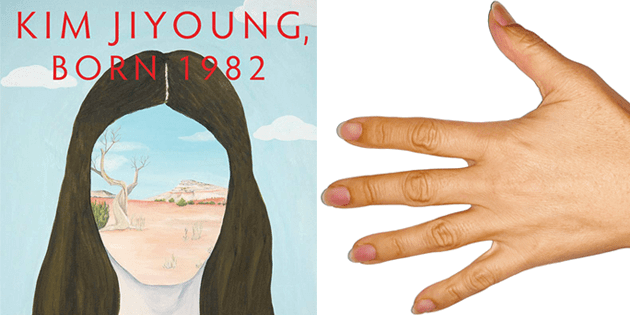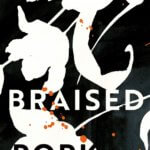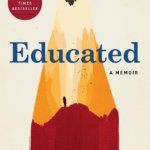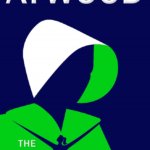17 Apr / Five More to Go: Cho Nam-Joo’s Kim Jiyoung, Born 1982 [in The Booklist Reader]


Kim Jiyoung, Born 1982 by Cho Nam-Joo and translated by Jamie Chang
Cho’s narrative is part bildungsroman and part Wikipedia entry. She opens with “August, 2015,” immediately divulging the fragile mental state of her titular Kim Jiyoung, who now as a wife and mother has developed the disturbing tendency to suddenly become other people she’s known, both living and dead. Through four chronological milestones – childhood, adolescence, early adulthood, and marriage – Cho presents what happened in the prior 33 years that actuated Jiyoung’s “abnormal behavior”; each period is marked by gross misogyny, from microaggressions to bullying to abuse to unrelenting dismissal. Her final chapter, presented as Jiyoung’s therapist’s report – his claims of being “aware” and “enlightened” only damning him further as an entitled troll – proves to be narrative genius.
Arriving stateside already an international best-seller, this debut novel from television scriptwriter Cho has been credited with helping to “launch Korea’s new feminist movement.” The fact that gender inequity is insidiously pervasive throughout the world should guarantee immediate resonance beyond cultures and borders. To further challenge and investigate this global phenomenon, check out these international titles.

Braised Pork by An Yu
Chen Hang is facedown in the bathtub when his wife, Jia Jia, discovers his naked corpse. Married for four years, their intended “lifelong partnership” didn’t include love, at least not for each other. After vomiting her “insuppressible resentment and disgust,” Jia Jia finds a pencil drawing of a fish with a human head, clearly sketched by Chen Hang. She’s inspired to reclaim her pre-marriage artist identity and attempts to paint the otherworldly fish-man into understanding. She attempts an uncertain affair with a local bartender, possible reconciliation with her runaway father, and experiences unexpected revelations about her late mother. Beijing born-and-raised An Yu transforms her home city into an affecting backdrop as she exposes and confronts the detachment between those meant to be most connected.

Convenience Store Woman by Sayaka Murata and translated by Ginny Tapley Takemori
Despite having “a normal family,” Keiko “was a rather strange child” who learned quiet detachment to avoid further trouble. At 18, she’s “reborn as a convenience store worker” at a newly opened Smile Mart. Donning a uniform, learning the manual, and mimicking her coworkers enable Keiko to become “a normal cog in society.” Eighteen years later, she remains a top-performing employee, but at 36, her being a single woman in a dead-end job elicits worry and judgment from family and acquaintances. To deflect unwanted meddling, Keiko “adopts” an arrogant wastrel with both comical and bittersweet results. Murata’s dazzling English-language debut – in a crisp translation by Takemori – is rich in scathingly entertaining observations on identity, perspective, and the suffocating hypocrisy of “normal” society.

Educated by Tara Westover
As the youngest of seven children born to a junkyard-tending father and midwife-herbalist mother in remote Idaho, Westover realizes at seven the single fact “that makes [her] family different: we don’t go to school.” Her family espouses Mormonism, although their practices tend toward isolated fundamentalism. Her father’s distrust of government, doctors, and education left Westover without a birth certificate or medical and school records. Neglect and abuse were common. Encouraged by a brother who got out, Westover entered her first-ever classroom at 17 as a Brigham Young University freshman. Basic history – the Holocaust, civil rights movement – was yet unknown to her. She progresses to Cambridge, Harvard, and back to Cambridge, where she earns a history PhD. A Mormon metamorphosis memoir is such a rarity that readers will undoubtedly be drawn to getting Educated.

The Testaments by Margaret Atwood
The Testaments begins 15 years after The Handmaid Tale’s conclusion, with Aunt Lydia as the most significant continuing character. “If you are reading,” she addresses us directly, “this manuscript at least will have survived.” As Aunt Lydia exposes the machinations of Gilead’s elite and how they engender its destruction, Witness 369A (aka Agnes Jemina) and Witness 369B (aka Daisy) take turns revealing the world outside. Agnes matures from a trusting innocent in Gilead’s suffocating society to a tenacious survivor and truth seeker. Daisy, raised in Toronto in relative freedom, begins as the quintessential teenager, until the murder of her parents on her sixteenth birthday reveals the lies that have made up her life … and the lies she’ll need to live to save many others.

The Water Cure by Sophie Mackintosh
The eerie chill factor proves unrelenting throughout Mackintosh’s 2018 debut which reveals the dissolution of an isolated, splintered family. Grace, Lia, and Sky are three daughters whose father, King, is missing. In a dystopic future ruined by gender violence and environmental destruction, the sisters have been cruelly manipulated to rely only on each other. When two men and a boy wash up on their shore, Mother keeps the sisters separate and safe … until she, too, disappears. Lia’s curiosity leads her to embrace the forbidden. Eldest Grace knows from her own wrenching past what happens next. Father, the men, pass – the sisters must figure out how to survive.
Published: “Five More to Go: Cho Nam-Joo’s KIM JIYOUNG, BORN 1982,” The Booklist Reader, April 17, 2020
